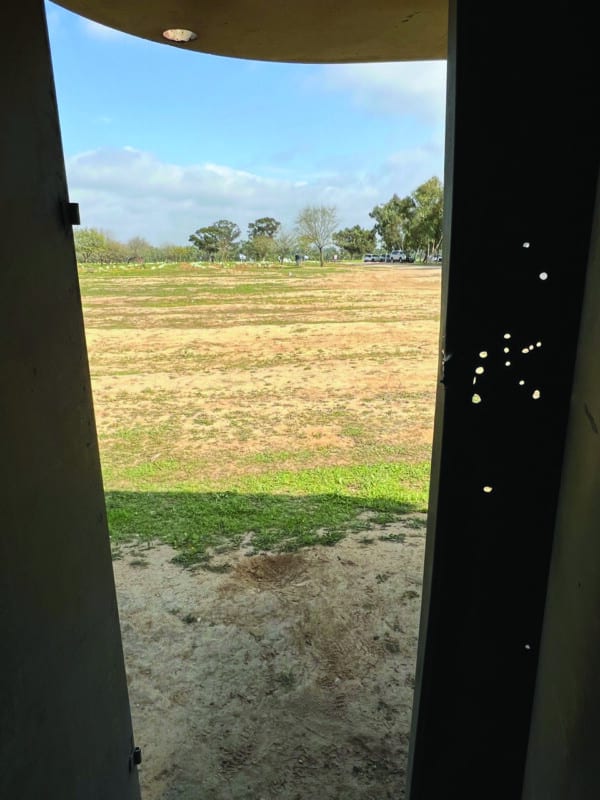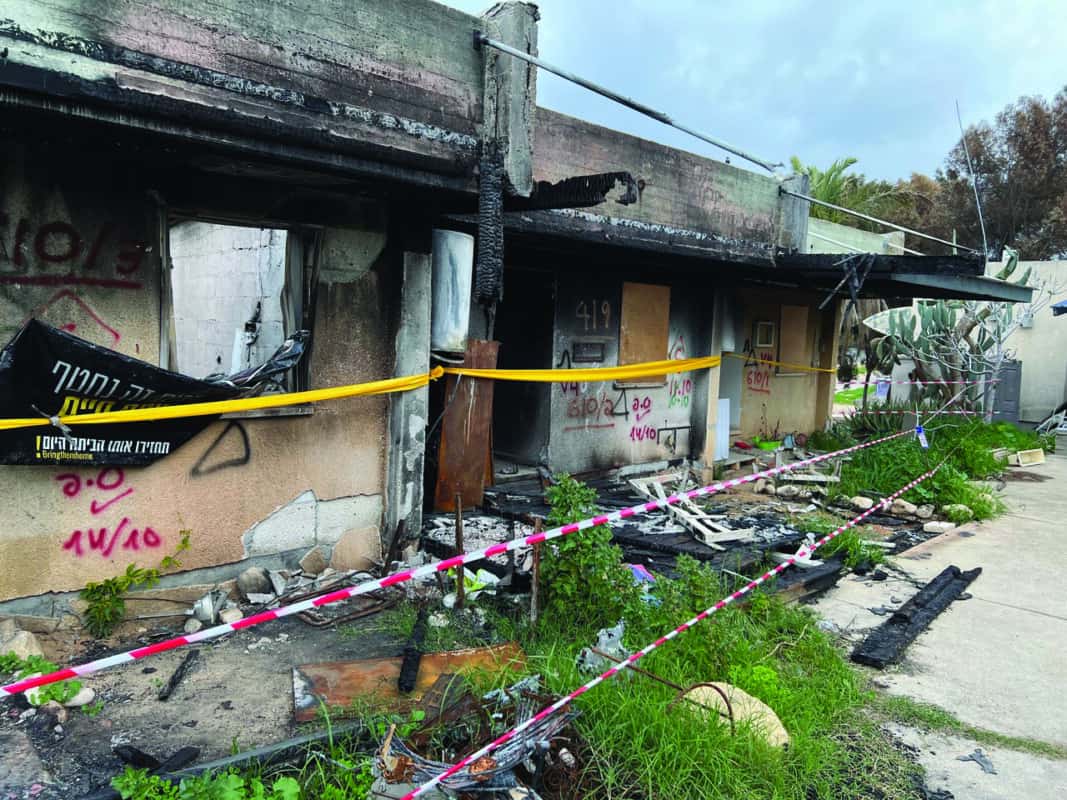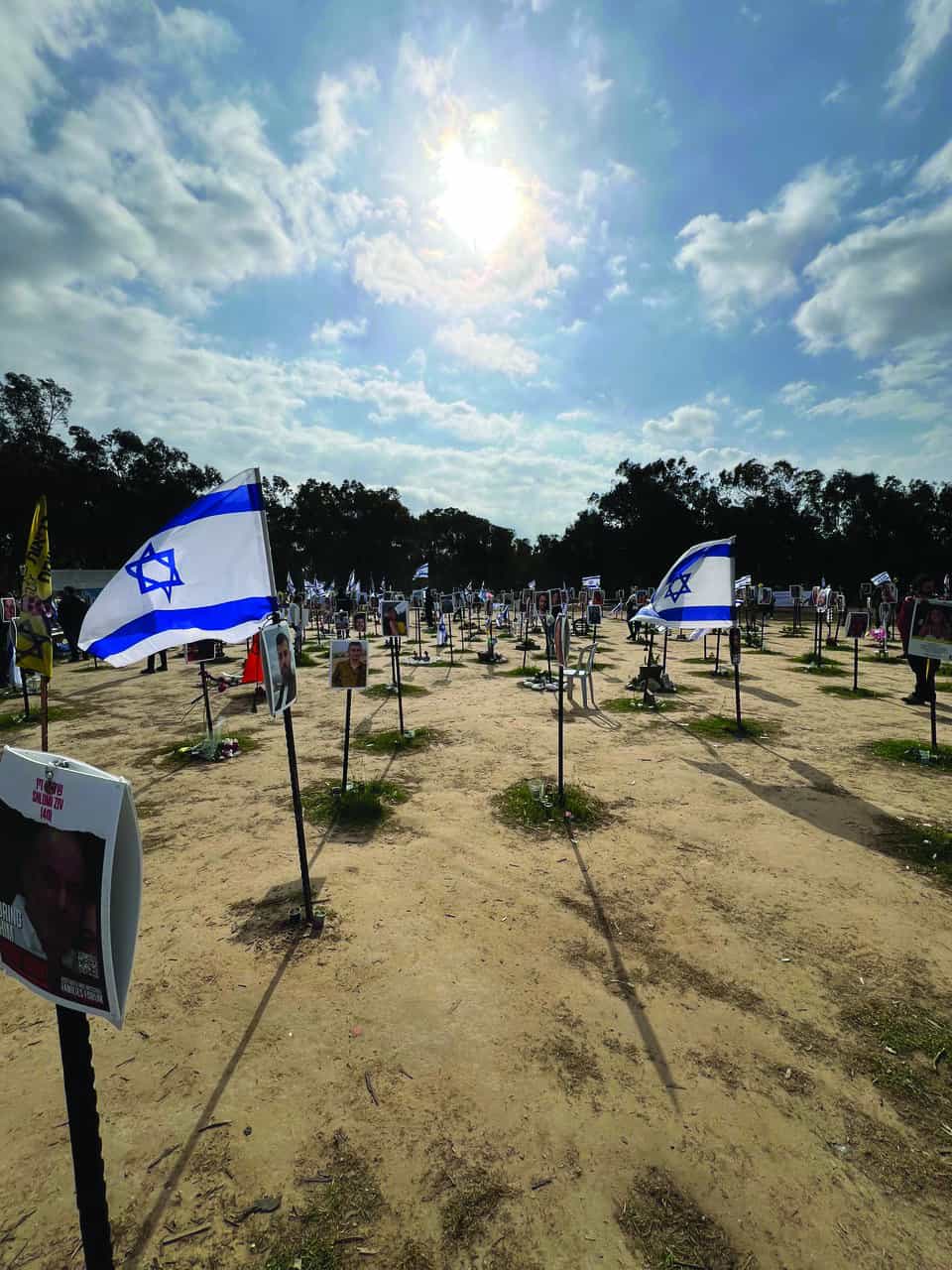October 7th changed a lot about Jewish life in Israel and the diaspora. Conversations that used to be challenging have become even harder. Students have become confused, conflicted, and pulled by various narratives not knowing what to think. Jewish students have experienced the rise of antisemitism on and off campus in unprecedented fashion. Students feel scared and intimidated about what to believe, where to go, and how to respond. This generation of college students are having to deal with antisemitism and anti-Zionist rhetoric as a reality and not just as a theory.
While the rise of antisemitism and confusion about Israel is pervasive in the lives of students today, another equally powerful phenomenon exists. Jewish students, while confused about Israel and what is happening in Gaza, are searching for community, belonging, and meaning at a higher rate than in the past. In the last academic year, Hillel at William & Mary engaged more than 350 Jewish students on campus. As of Feb. 1, engagement is up more than 25% from this time last year. Jewish students are looking for community and identity now more than ever and Jewish educators need to figure out how to meet that need in the most effective ways possible.
In January, Taglit Birthright Israel chose 20 North Americans and 5 Israeli tour educators to participate in an “Educators Forum.” The forum’s purpose was to bring experienced educators together to evaluate what changes or adaptations should be made to Birthright Israel in a post October 7th world. Should items be added, subtracted, or modified on the trip that would give the participant a better experience? The job of this forum was to attempt to answer some of these questions. I was lucky enough to be part of this prestigious group.

The seven days together were amazing. We spent an entire day on the border with Gaza – an opportunity I will never forget. This is especially true as the affected communities will soon be rebuilding, so the rawness of the experience will never be the same. The police tape will be taken down. The half-burned dolls and the melted bikes will be removed. The bullet-riddled mattresses and the ovens with holes made by machine gun fire will be vacated from the half-destroyed homes. The color-coded diagrams on the home exteriors illustrating if there was a dead Israeli or a dead terrorist inside will be washed off. The children’s bedroom that is missing a ceiling because it was blown off by an RPG will no longer exist. The ash still blowing in the streets will be hauled away. The raw evidence of the pogrom will soon be gone and only those relative few witnesses who saw the evidence of the atrocities, and those who were present on October 7th, will be able to personally attest to the horrors of this newest chapter of Jewish history.
October 7th, however, according to Dr. Zohar Raviv, international vice president of educational strategy for Taglit Birthright Israel, is not a Jewish event. The atrocities, the murder, the pogrom, and the many cowardly and animalistic acts of October 7th were not “Jewish events.” The kidnapping of innocent men, women, and children into tunnels in Gaza were not “Jewish events.” The rape, torture, and cruelty of Hamas towards the Israelis and others they victimized were not a “Jewish event.”

Raviv spoke with our group in Israel and posited that the “Jewish event” in this instance is the way the Jewish people will respond to this tragedy, not the tragedy itself. Raviv taught that we should not allow ourselves to be defined by our terror-ridden history. We are defined by how we react to this history. How will we teach about it, learn from it, and become stronger because of it?
Raviv challenged us to not stand amongst the ashes of the moment and weep, but to create the type of Jewish story that we and future generations can be inspired by. At this pivotal moment, how will we engage and inspire our students? How will we pivot our educational pedagogies as Jewish educators to match the reality of our times? What vision will we have that will inspire our younger generations to identify with, attach to, and care for the Jewish state?
The author of the story
To answer this question, I believe that it is time to focus our attention on what our students are asking for. Today’s Jewish students on campus are asking for belonging, community, identity, and meaning. We need to use October 7th, and the current conflict, as a springboard to allow our students to begin an internal investigation, not only a deep dive into Israeli history and politics. October 7th is not the story. The students are the story. Each Jew is the story, and it is our job to get back to basics and spread that message. October 7th was not only an attack on the Jews living on the Gaza border, but it was also an attack on every Jew worldwide. It facilitated the opportunity for often latent, yet ever-present, antisemitism to awaken again and be shown clearly to young, Jewish adults most of whom, prior to October 7th, had never confronted real hate themselves. Recent times have shown us the true colors of our friends and shed light on who our enemies are. Israel education today on campus has become, and should be, Jewish identity education where Israel is the educative catalyst for questions of connectivity and peoplehood.
Jewish student engagement on campus is increasing like never before. Students are coming to us. What are we offering them? Are we, as those charged with influencing the identity and connectedness of the next generation of Jews, going to grasp on to and utilize this moment or are we going to see it as another Jewish event that needs only to be memorialized for its own right? By creating interactive, educational programming focused on Jewish identity and attachment to The Land and personal, inspired Jewish practice, I believe we can begin to answer this call. The Jews alive today are the real story of every tragedy that has befallen our people. Let us all play an active role in authoring our story for the future.
Rabbi Gershon Litt is the executive director of William & Mary Hillel as well as the advisor to Christopher Newport University and Old Dominion University.

